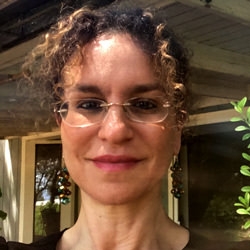

NVC Resources on Trauma
-
An addiction to something (eg. opioids, fats, sugars, salts, cigarettes, coffee, alcohol, etc.) or a compulsion (eg. gambling, shopping, working, sex or love addictions) is often an unconscious attempt to soothe trauma - fear, loneliness and shame that's frozen in unconscious memory. The addiction or compulsion is a substitute for what we really need. It is an endless craving that's never enough. Read on for more.
-
Self-compassion is essential for healing trauma and restoring your wholeness. It is also an antidote to reactivity and separation, allowing presence to emerge.
In developing presence, you can become what the world needs most in these times of intensity and chaos. This work can strengthen your skills to be more fully in relationship with all that life offers while allowing your heart to be moved by what is alive in you and with others
-
Mismanaged emotional pain can compound and hurt ourselves and others. Four ways we can mismanage pain are: denial, blame, depression, and escape/numbing. This can result in hatred, resentment, discrimination, revenge, anger, and more problems. The fifth way we can deal with pain is to confront the pain acknowledging it and dealing with our unmet needs. This is a more direct path. Read on for more ideas for how to handle the pain.
-
How the "story" we tell ourselves impacts our childhood and the roles we play.
-
When we're received with resonant understanding painful moments can lessen their charge and became part of the whole tapestry of life -- important but no longer able to hijack us into the eternal re-run of pain. When held this way, we can touch the memories with our attention the way one touches a newly repaired tooth with the tongue, searching for the old roughness, the old wound, but not finding it.
-
Our pattern-making minds make predictions about how best to survive in the world. So deep wounds from our past can influence our minds to make life long generalizations that harden into core beliefs about groups of people. Read on for a demonstration of how empathy can shift these wounds and thus the core beliefs.
-
Learn how unconscious impulses can lead to depleting patterns. Here, we look at two forms of reactive attempts we may use to avoid future pain, and how to make conscious decisions instead. Read on for questions that can help us see if we're making decisions from a grounded place, such as taking time to reflect on values, receive support from others, and getting curious about others' views.
-
Join Eric Bowers in transforming past relationship pain, coming alive in community and creating thriving relationships. This 12 session Telecourse recording brings together Eric's passions for Nonviolent Communication, Attachment Theory and Interpersonal Neurobiology.
-
This anecdote illustrates how a young man had the social awareness to consider how male conditioning may bring up competitiveness in his interactions with another man. The young man offered transparency and checked for consent in a way that shows an embodiment of power-with, togetherness, consideration, care, collaboration... and all without displaying any formal NVC training, and without looking to impress.
-
How excited do you get about connecting with people who are proving themselves right and who act like they know it all? Do you prefer the company of not-knowers who are in awe of the mystery of life and exploring with humility and innocent curiosity? Masking our vulnerability in not-knowing can point to deep wounds inside us, where perhaps the common denominator is our desire to prove our worth.

Quick Links
Subscription Preferences
Stay In Touch!
Looking for ways to keep up with NVC Academy news, get special offers, free resources, or words of inspiration? Here are five ways to stay engaged:










